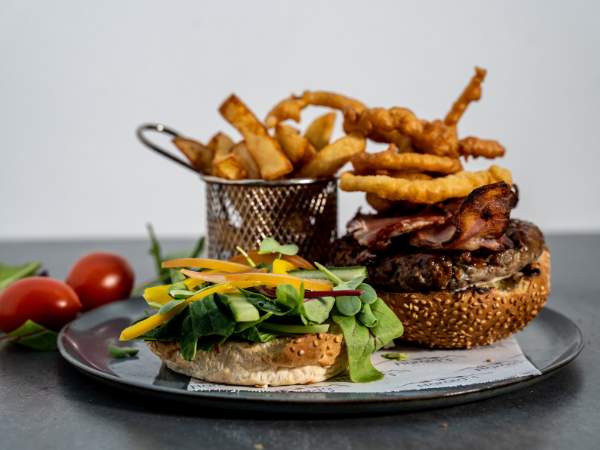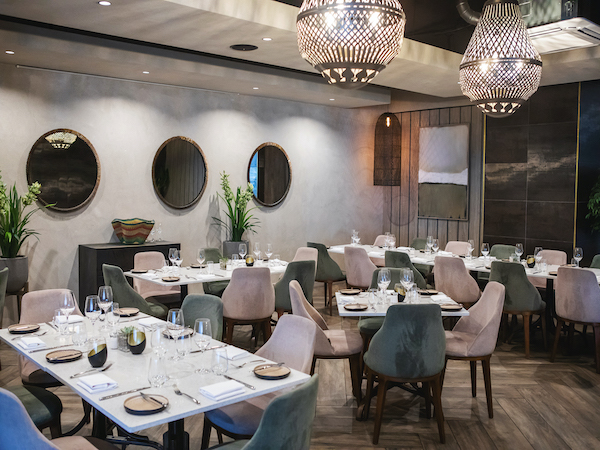News
Farm to forkin’ great: 4 restaurants winning at waste-free cooking
Monday, August 13th, 2018Think you’ve got what it takes to be the winner of the 2018 Eat Out Woolworths Sustainability Award? Enter now.
Farm-to-fork cooking is a goal many restaurants aspire to, for good reason. It means being near or on a farm where all the produce for dishes come from, resulting in the shortest possible ingredient journey, complete control over the quality of ingredients, and changing menus with the seasons. It also allows for less food waste, which is a global farming problem. These Western Cape restaurants are exemplifying waste-free cooking with menus that tell a story.
Camphors at Vergelegen (Somerset West)
Chef Michael Cooke’s restaurant took home the Woolworths Sustainability Award at the 2017 Eat Out Mercedes-Benz Restaurant Awards for good reason. Most of the food that ends up on your plate at Camphors comes straight from the Vergelegen estate itself, with 200 free-range Nguni cattle and a huge selection of fresh produce. Cooke says there’s always at least one dish on the menu that is hyper seasonal, like his chestnut-and-pear smoked masterpiece. “We take a very careful approach in terms of how we source and harvest our ingredients,” says Cooke. “We put back what we take out. We must leave it better than what we found it. It’s become part of our restaurant’s story to pass that education and that knowledge that we’ve gained within the environment into the meal experience.”
Eight at Spier (Stellenbosch)
It’s no accident that this Stellenbosch restaurant is named Eight – it expresses their philosophy of balance, cycles, infinity and abundance. Greens and fresh veggies come from the food garden while fillet, sirloin and sausages come from grass-fed cattle reared on Spier’s pastures, along with delicious eggs laid by free-range hens. “You can go and visit the vegetable garden and see what Farmer Neil is growing,” says Spier co-owner Mariota Enthoven. “He’s absolutely passionate about growing food. And then you go to Eight and you eat that food that he probably would’ve picked that day.” This next-level take on seasonality means that from day to day there’s no predicting what will be on the menu. If you’re lucky, you might be treated to the moreish slow-roasted Farmer Angus pie served with crisp vegetables.
FABER (Paarl)
Being just two years old, FABER took its philosophy from the biodynamic practices already in place for the production of Avondale wines. The farm now includes ducks that eat any pesky snails, Black Angus cattle that are free to roam and 100% grass-fed, and an egg mobile. Animals only reach the plate once they have become too old. When it comes to vegetables, they’re also sorted. “Chefs should reconsider what we identify as food waste,” says chef Dale Stevens. “The principal of nose to tail should be applied to vegetables, root to leaf.” The Avondale organic vegetable garden was established with the restaurant. Here is where most of the ingredients that end up on your plate originate. To avoid waste, any extra fruit and vegetables are sold to farm workers. What are all these great ingredients going into? Dishes like aged Red Angus flat iron steak with confit carrot and sunflower- and pumpkin-seed pesto; roasted and grilled aubergine with charred tomato velouté, potato gnocchi and goat’s cheese; and braised beef shin with roasted garlic and spicy cauliflower.
The Marbled Wagyu @ De Kombuys (Oudtshoorn)
“We incorporate freakin’ everything,” owner and farmer Martin Smuts bluntly says. This Oudtshoorn restaurant takes an old-fashioned approach to farming, which is what Smuts says is the real meaning of ‘organic’. Everything from the farm stays on the farm, reincarnating to take on a different biodynamic role before eventually contributing to what goes on your fork. There’s a heirloom vegetable garden and all the vine stalks, weeds and organic material from the farm end up on a compost heap topped with cow manure from the 70 Wagyu cows on the farm. Try the prime cut of Wagyu, which is served with a mushroom puree, soya arancini, ginger garlic prawns, a spinach-and-strawberry salad and a Wagyu cure on Melba toast. There’s also the chef’s signature menu, which is a love letter to Wagyu: every single dish contains some form of it, whether in the form of steaks, biltong or tartare.
About the sponsor
Woolworths is the first retailer in South Africa to announce its vision of zero packaging waste to landfill. This means that they aim to have none of their packaging end up in landfills, which requires 100% recyclable material and a supportive recycling infrastructure. Key to realising this vision is the phasing out of unnecessary single-use plastics. As part of this, they have announced their commitment for all packaging to be either reusable or recyclable by 2022. They have also committed to phasing out single-use plastic shopping bags completely by 2020. This means that the business is working towards removing all packaging that is currently not recyclable, focusing on removing unnecessary single-use plastics from stores and ensuring ongoing customer education on the role of packaging in the elimination of food waste.
Woolworths also donates surplus food to a wide spectrum of charities every day. In 2017 they donated food to the value of R556 million to approximately 1500 organisations.
They also work to reduce food waste by using ‘Sell By’, ‘Best Before’ and ‘Use By’ dates on all food products. This helps to guide consumers on how to buy and save food. Sustainability and the Good Business Journey are at the heart of everything Woolworths does.












